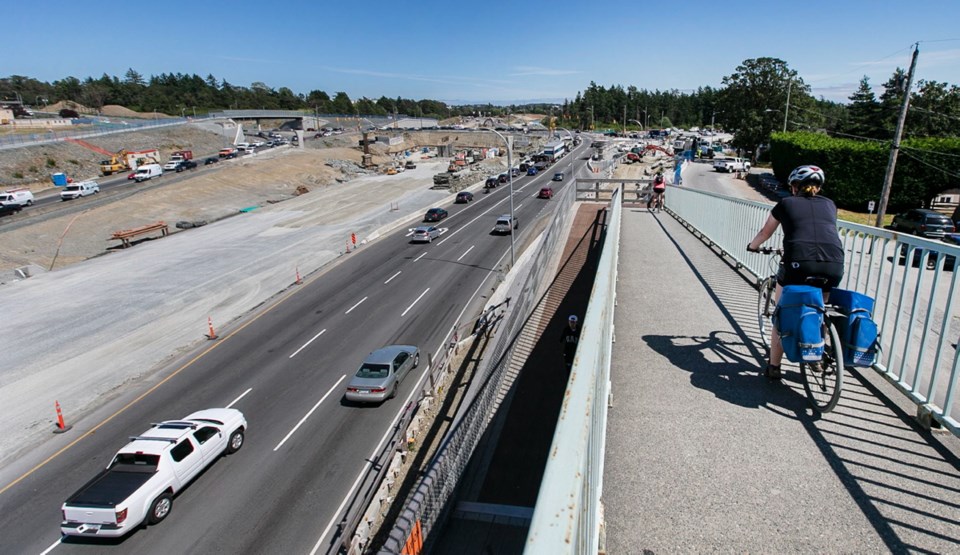The McKenzie interchange project will be at least $11 million over budget due to design changes, weather delays and other setbacks, the B.C. government confirmed Tuesday.
The budget update comes after the Transportation Ministry announced in April that the project was six months behind schedule.
At the time, ministry officials were unable to say how delays would affect the project’s $85-million budgeted cost.
They now say the approved budget has risen to $96 million.
B.C. will absorb the entire $11-million cost overrun, boosting its contribution to $63.4 million from $52.4 million. The federal share remains at $32.6 million.
“The budget increase is attributed to design modifications to the centre pier due to variable rock conditions, additional environmental management, and schedule delays due to winter weather and efforts to lessen traffic and noise impacts,” the ministry said in a statement.
The centre pier supports the bridge that will allow traffic on Admirals Road and McKenzie Avenue to pass over the Trans-Canada Highway.
Janelle Staite, regional deputy director for the Transportation Ministry, told reporters in April that when crews went to drill the pilings for the centre pier they encountered rock sooner than expected. The rock was also highly variable, prompting modifications to the pier’s design.
As well, construction came to a halt after a heavy snowfall hit the capital region in February, Staite said.
Earlier delays were caused by changes to the work schedule in order to reduce noise and mitigate traffic delays.
Work on the project began in 2016. The government initially expected to finish construction in 2018, but pushed that to 2019 and then to the summer of 2020.
The province hopes to remove traffic lights on the Trans-Canada at the intersection by this winter.
Once complete, the project is expected to improve traffic safety, ease congestion and shave up to 20 minutes off motorists’ commutes, the government says.
Chris Foord, vice-chairman of the CRD Traffic Safety Commission, said he had no concerns about the cost overruns.
“To be honest, it’s worth spending the money to get an excellent product,” he said. “I must say I’ve been very impressed with the work that I’ve seen there over the past few years; I ride through there on my bike at least twice a week.
“Yeah, they got screwed up a little bit with weather delays and what not with the snow . . . and some technical issues. But I think there’s no question it’s going to help.”
Foord said, however, that he would like to see more progress on building bus lanes and promoting car pools to further reduce congestion.
“My gosh I can’t believe it’s 2019 and we’re just doing bus lanes,” he said. “I mean, those things should have been there 20 years ago.”
— with files from Jeff Bell


